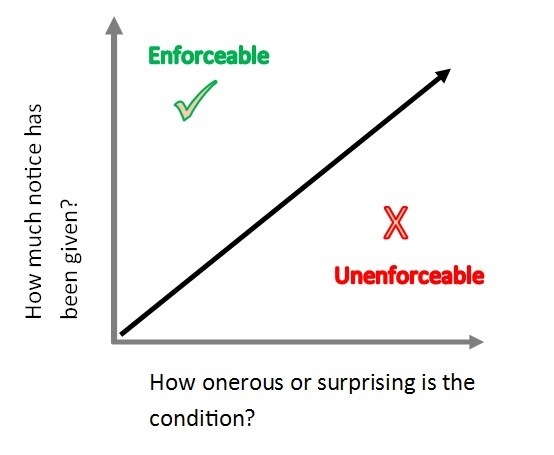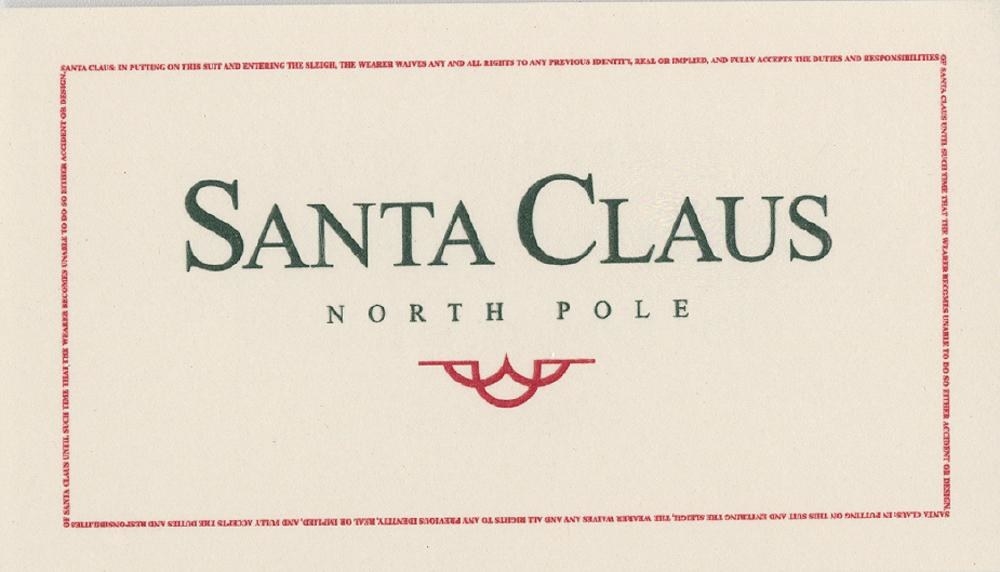Introduction
We’ve all seen the movie, or at least I should hope: Scott Calvin and his son Charlie are awakened by a ‘clatter’ on the roof of their home. When Scott confronts the man standing on his roof, he inadvertently falls off into a snowbank, vanishing into thin air. What remains is red velour robe and funny sense that our protagonist has caused Santa’s death.
Facts
Checking the pockets of the robe for a wallet or other piece of identification, Scott discovers a regal business card instructing him to put on the suit and that “the reindeer will lead the way.” Despite initial apprehension, Scott is advised by his son to put on the suit and check the roof for reindeer. His suspicions correct, the film continues with to document the duo assuming the role of Santa Clause for the remainder of Christmas Eve, returning to the North Pole after having delivered presents to all the good boys and girls.
Upon arrival to the North Pole, Scott meets head-elf Bernard who explains that due to a clause written on the card found in the robe, by putting on the suit and entering the sleigh, Scott had accepted the “Santa Clause” and agrees to a certain set of detailed responsibilities:
View this video on YouTube
https://youtube.com/watch?v=8JwiOJ_G_RQ
The Santa Clause:
“In putting on this suit and entering the sleigh, the wearer waives any and all rights to any previous identity, real or implied, and fully accepts the duties and responsibilities of Santa Claus, in perpetuity until such time that the wearer becomes unable to do so, by either accident or design.”
Though the story proceeds joyously and proved successful enough for two other Santa Clause installments, the plot would have been very different if Mr. Calvin had litigious inclinations. If, instead of capitulating in the Spirit of Christmas and take on the role of Santa Claus, Scott Calvin chose not to aide by the ‘Santa Clause’, a legal dispute would certainly arise.
Issue
Could the North Pole, the entity, successfully enforce the 'Santa Clause' against Scott Calvin?
Our matter can be analogized to cases in English common law where standard-form contracts or tickets for services contain terms that have been drafted unilaterally. These mainly come in the form of a waiver of liability, however the same principles apply.
The Law
In the common law of contracts, a party attempting to enforce a surprising, onerous, or unreasonable term in a contract must have sufficiently drawn the term to the attention of the other party in order to make that term enforceable. In short, the party against whom the term will be enforced must have been given reasonable notice that they were agreeing to the term.
One of the earliest cases on the topic is the English case of Parker v South Eastern Railway Co (1877). Parker’s luggage had been lost on one of South Eastern’s train rides, but when he tried to sue for losses, the railway argued that the ticket he was given when checking his luggage contain a waiver of liability they sough to enforce. Lord Justice Mellish opined, at para 3, that “the railway company must…take mankind as they find them,” and established three rules:
# If the plaintiff did not see or did not know that there was writing with conditions on the ticket, they are not bound by the conditions;
# If the plaintiff knew there was writing that they knew or believed contained conditions, they are bound by the conditions; and lastly,
# If the plaintiff knew there was writing on the ticket, but did not know or believe that the writing contained conditions, they would be bound if they were given the ticket in such a manner that they would know the ticket contained conditions, or reasonable notice of the conditions was given.
The reasons of Lord Justice Mellish were cited by Lord Denning MR in a similar ticket case. In Thornton v Shoe Lane Parking Ltd (1971), where the defendant parking garage attempted to enforce an exclusion of liability clause on a parking receipt, Lord Denning MR synthesizes the test into one simple statement: “the customer is bound by the exempting conditions if he knows that the ticket is issued subject to it; or, if the company did what was reasonably sufficient to give him notice of it.”
Lastly, the law was further augmented by the reasons of Lord Justice Dillon in Interfoto Picture Library Ltd v Stiletto Visual Programmes Ltd (1989). Two companies engaged in a rental of transparent photos for a fee, and the plaintiff company sent the photos along with a form containing conditions. One such condition imposed late fees on the photos that were well in excess of the industry standard. When the defendant company refused to pay the onerous late fee, the plaintiff company sued to enforce the term in the contract. Lord Justice Dillon held that “if one condition in a set of printed conditions is particularly onerous or unusual, the party seeking to enforce it must show that that particular condition was fairly brought to the attention of the other party.”
Drawing together the law from all three cases, we can see a single theme: if a standard form contract contains an unusual, surprising, or onerous condition, the party seeking to enforce it must bring it to the attention of the other party by giving sufficient notice of it. Further, the more inherently onerous or unreasonable the condition is, the greater the requirement for notice will be:
Enforceability Frontier

Analysis

Conclusion
In summary, it cannot be said that the onerous 'Santa Claus' was fairly brought to the attention of Scott Calvin at the time he accepted the contract. As such, if the North Pole sought to enforce the term against him in a breach of contract suit, a Court would declare the term unenforceable. Barring any policy considerations or legislation that would compel the wearer of a Santa Claus suit to bear the burden of ensuring Christmas would be save, Scott Calvin would more than likely be free from this obligation.


